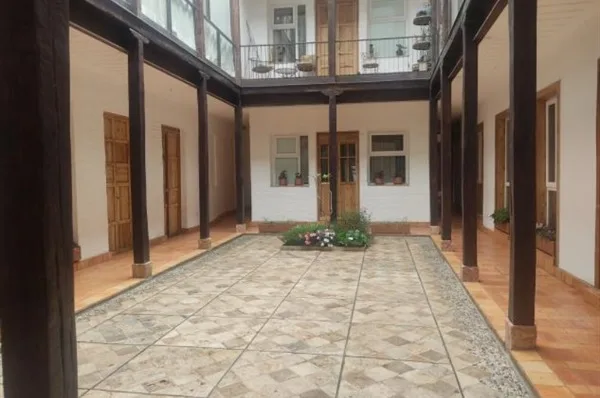At UN conference, Correa argues that the needs of people should not be subjugated to those of international capital
President Rafael Correa of Ecuador told an audience of hundreds that “subjugation of living, breathing human beings to the needs of capital” is not acceptable, in a damning critique of “an immoral and unjust world order” during a special lecture organized by the United Nations Conference on Trade and Development (UNCTAD) in Geneva on 24 October to mark its fiftieth anniversary year.
Correa’s lecture, called “Ecuador: Development as a Political Process”, covered efforts by his country to build a model of equitable and sustainable development, as well as the lessons learned from implemented policies. 
Ecuador is one of the few countries where inequality is being reduced, Correa said. In the last seven years it had continued to grow compared to its neighbors and this was despite the 2008 financial crisis and dollarization in 1999. Extreme poverty has been reduced to single percentage points but, he said, “one poor person is too many and an insult to humanity”.
“An economist at the time of Columbus would have predicted a brighter future for Latin America than North America. But why didn’t this happen? It is one of the enigmas of development,” Correa said.
“The answer is that development is a political issue: who is in charge? Elites or the majority? Capital or humankind? The market or society? The greatest harm done to societies is to separate politics from economics and we have been led to believe that economics is a ‘technical’ issue. Many academics are now discovering that development is a political issue. Institutions, policies and programs depend on who holds the balance of power.”
Correa went on to describe how Ecuador had emerged from what he called “the long dark night of neoliberalism” to apply “new socialist” methods of redistribution, social spending and novel mechanisms such as mandating a “dignified wage” for households. As a former academic, Correa also said that he placed a premium on investing in education.
“Education is the cornerstone of democracy,” he added. “To improve our skills base we are investing more than the OECD average in higher education at almost 2 percent of GDP.”
In order to safeguard against volatility caused by the globalization of financial capital, which he said was a threat to the sovereignty of developing nations, Correa said that regional integration would be key.
“If I have learned anything during my time as president it is that the world is dominated by transnational capital and the interests of the hegemonic countries. Regional integration can guard against neo-colonialism: the world of the future is a world of blocs,” President Correa said. “I personally restate what I said in 2009: Europeans will have to explain to their grandchildren why they united; and we in Latin America will have to explain to our grandchildren why it took us so long!”
Correa concluded by saying that if inclusive and sustainable development is to succeed “people must prevail over capital and society must prevail over the market”.
UNCTAD Secretary-General Mukhisa Kituyi, in welcoming remarks, said: “At UNCTAD we know that how a country deals with its own challenges is more important than any outside advice. Therefore I am keen to hear what President Correa has to say about Ecuador’s experience and how we might learn from it.”
Correa’s lecture, delivered in Room 20 of the Palais des Nations (the “Human Rights Room”), was the fifteenth of UNCTAD’s Raúl Prebisch Lectures, and the first to be given by a sitting head of state.
The Raúl Prebisch Lecture Series was established in 1982 by then-UNCTAD Secretary-General Gamani Corea, to honor Argentinian economist Raúl Prebisch, UNCTAD’s founding secretary-general.
Dr. Kituyi said that it was fitting for a Latin American leader to speak during UNCTAD’s fiftieth anniversary year because it was development thinking that had originated in Latin America which led to the establishment of UNCTAD.
The first Raúl Prebisch Lecture was given by Dr. Prebisch himself, followed by a number of eminent thinkers in the field of trade and development, including: Indira Gandhi, Prime Minister of India (1983); Joseph Stiglitz, senior vice-president and chief economist of the World Bank (1998); and Jeffrey Sachs, director of The Earth Institute at Columbia University and an advisor to United Nations Secretaries-General Kofi Annan and Ban Ki-moon (2009).
Correa, who took office as president of the Republic of Ecuador in January 2007, has a background as an academic, government minister and consultant for international organizations. Successfully re-elected twice, his current term ends in 2017.





















